For the people collecting the Pocket/Short Guides the US Military published in 1943-1945 I’ve compiled a list of the books produced.
Not counting the pocket language guides and phrase books, I was able to ascertain that there were 37 books given out to US Soldiers.
A Pocket Guide To Alaska
A Pocket Guide To Czechoslovakia
A Pocket Guide To France
A Pocket Guide To Hawaii
A Pocket Guide To India
A Pocket Guide To Korea
A Pocket Guide To New Guinea
A Pocket Guide To The USSR
A Short Guide To Great Britain
A Short Guide To Iraq
A Short Guide To Syria
Going Back to Civilian Life
Meet The Marianas
Nansei Shoto (Ryukyu Islands – LooChoo Islands) A Pocket Guide
Pocket Guide For The U.S. Army Song Leader
Pocket Guide of Uniform Insignia
Pocket Guide To Australia
Pocket Guide To Burma
Pocket Guide To Camp Kilmer
Pocket Guide To China
Pocket Guide To Egypt
Pocket Guide To Germany
Pocket Guide To Iran
Pocket Guide To Italian Cities
Pocket Guide To Japan
Pocket Guide To Netherlands East Indies
Pocket Guide To New Caledonia
Pocket Guide To New Zealand
Pocket Guide To North Africa
Pocket Guide To Northern Ireland
Pocket Guide To Paris And Cities Of Northern France
Pocket Guide To The Cities of Belgium and Luxembourg
Pocket Guide To The Cities of Denmark
Pocket Guide To The Cities of Southern France
Pocket Guide To The Cities Of The Netherlands
Pocket Guide To The Panama
Pocket Guide To West Africa
Soldiers Guide To Naples

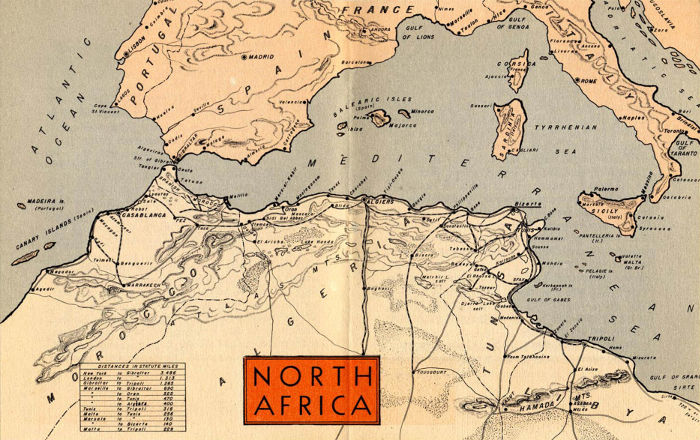
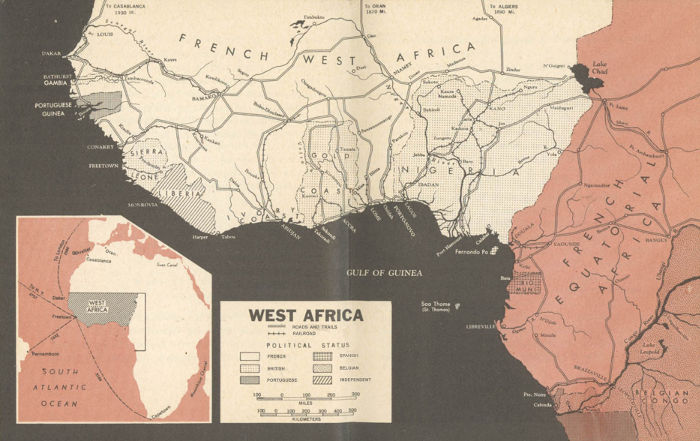
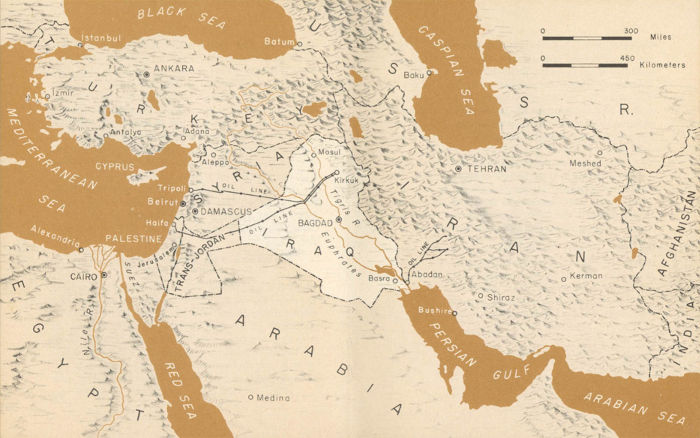
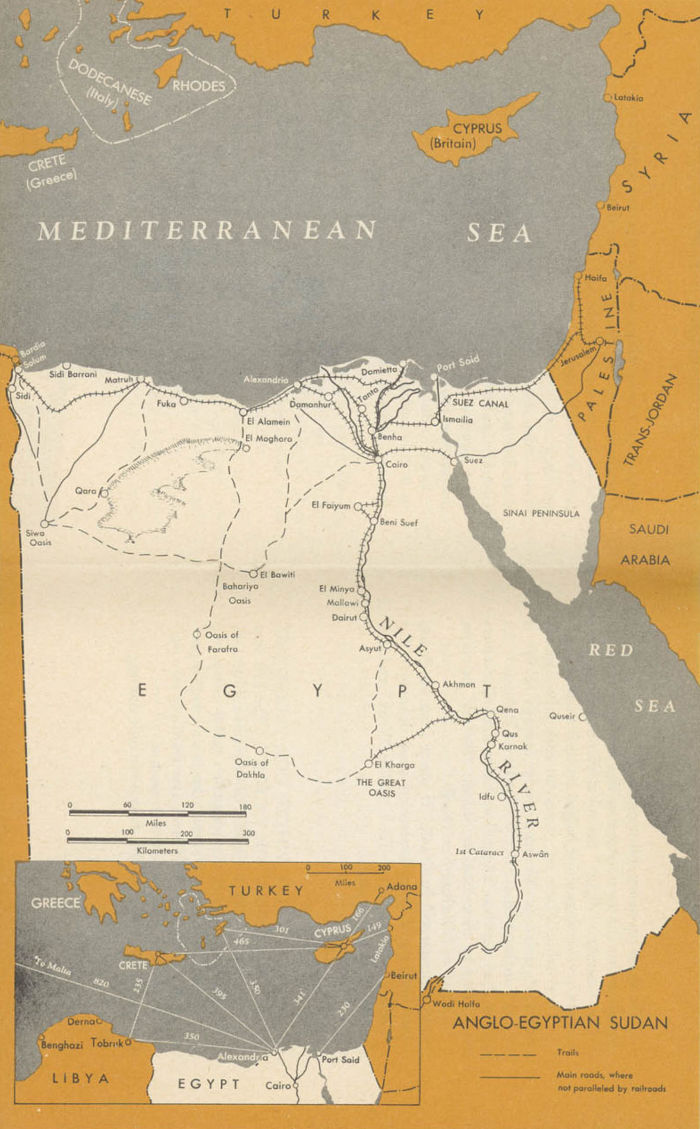
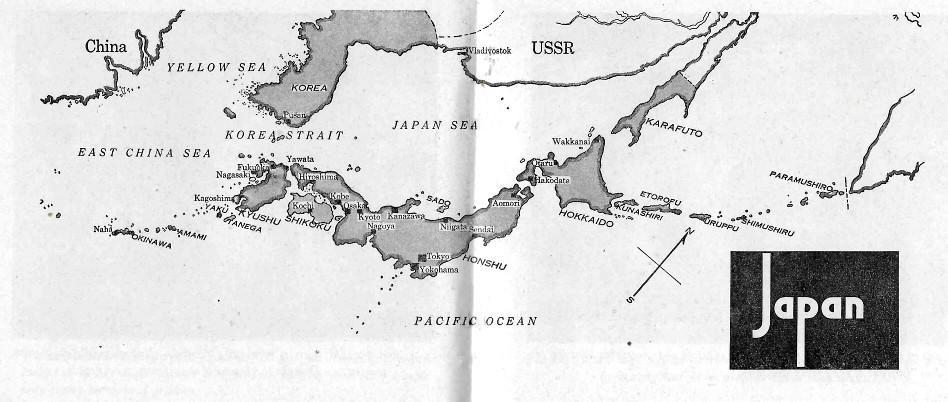
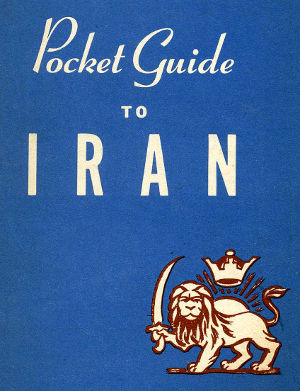
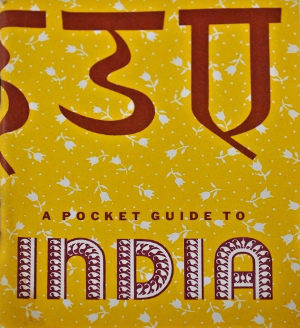
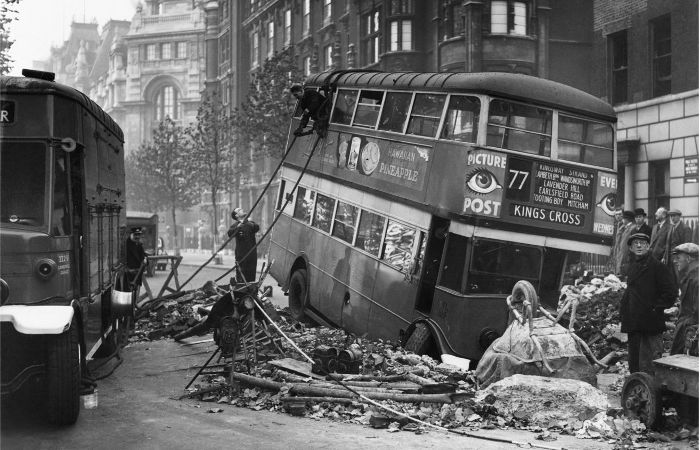
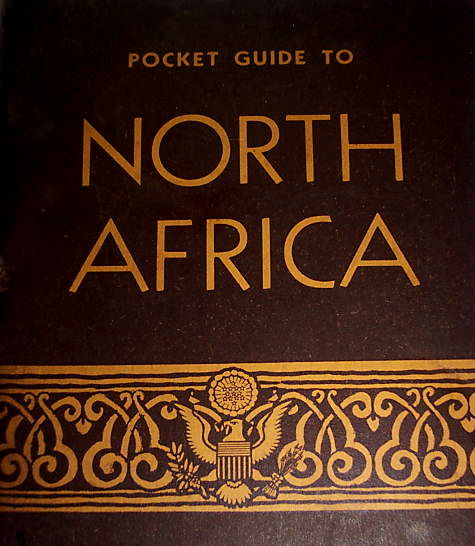 After the close of the First World War, one of the great strategists of Europe predicted that the next great war would be won in North Africa. He foresaw such a rise in air power as would make the Mediterranean Sea virtually a defile for all shipping. If their enemies were to come into complete possession of the Mediterranean shores, an almost insupportable strain would be put upon the nations dependent on sea power. On the other hand, if the North African coast could be held by
After the close of the First World War, one of the great strategists of Europe predicted that the next great war would be won in North Africa. He foresaw such a rise in air power as would make the Mediterranean Sea virtually a defile for all shipping. If their enemies were to come into complete possession of the Mediterranean shores, an almost insupportable strain would be put upon the nations dependent on sea power. On the other hand, if the North African coast could be held by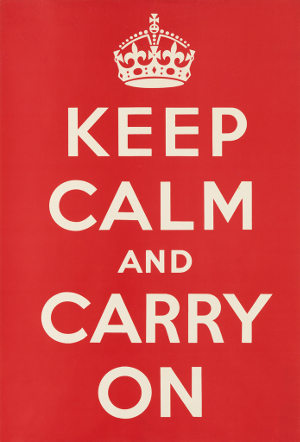 When Britain formally declaring war on Germany on September 3, 1939, the newly re-formed British Ministry of Information immediately began working on a giant poster publicity campaign to prepare the British populace for what the ministry feared would be an “appalling series of shocks, resulting in shattered nerves, a lack of confidence in ultimate success, and therefore a lack of will to work for victory” (Three Posters). The posters were intended as “general reassurance material” (ibid.). Three slogans were chosen and put into production on broadsides with white text against boldly colored backgrounds. Instead of a photograph or an illustration, each poster bore a depiction of the crown of King George VI at the top as an indication that the messages came from the King himself. The first two of these posters, “Freedom is in Peril / Defend it With All Your Might,” and “Your Courage Your Cheerfulness Your Resolution Will Bring Us Victory,” were distributed and posted around Britain in late September and October, 1939. The third, and now most famous, of these slogans was kept back in anticipation of a truly horrific incident, such as the invasion of Britain by German forces or a severe air raid. As it turned out, the first eight months after the British and French declared war on Germany (September 1939 – May 1940) proved to be largely uneventful for both the military and civilians. This time, now referred to as the “Phoney War,” was a period in which none of the Allied forces engaged the enemy in any serious land offensive. To paper the country with posters encouraging the populace to defend freedom and to project optimism, while keeping their stiff upper lips firmly in place when nothing was happening, turned out to be something of a public relations disaster. The public did not respond well to the first two posters. “The wording of ‘Your Courage . . . will bring us victory’ was criticised. There was some evidence the combination of ‘your’ and ‘us’ ‘suggested to many people that they were being encouraged to work for someone else,’ with the ‘your’ referring to the civilian, the ‘us’ to the Government. ‘Freedom is in Peril’ was also deemed ineffective, blamed on ‘the abstractness of the words, not one of which had any popular appeal'” (ibid.). The Times had described the posters as “egregious and unnecessary exhortations,” “insipid and patronising invocations,” which were unneeded and wasteful of funds (ibid.). Since the expected, immediate German attack never materialized, and because the earlier posters had been met with such derision, “Keep Calm and Carry On” was never posted and was kept in storage for years. After the war, the remainders were scrapped for their pulp. Contemporary reports cite that almost two and half million copies of the poster were printed. An HMSO (His Majesty’s Stationery Office)
When Britain formally declaring war on Germany on September 3, 1939, the newly re-formed British Ministry of Information immediately began working on a giant poster publicity campaign to prepare the British populace for what the ministry feared would be an “appalling series of shocks, resulting in shattered nerves, a lack of confidence in ultimate success, and therefore a lack of will to work for victory” (Three Posters). The posters were intended as “general reassurance material” (ibid.). Three slogans were chosen and put into production on broadsides with white text against boldly colored backgrounds. Instead of a photograph or an illustration, each poster bore a depiction of the crown of King George VI at the top as an indication that the messages came from the King himself. The first two of these posters, “Freedom is in Peril / Defend it With All Your Might,” and “Your Courage Your Cheerfulness Your Resolution Will Bring Us Victory,” were distributed and posted around Britain in late September and October, 1939. The third, and now most famous, of these slogans was kept back in anticipation of a truly horrific incident, such as the invasion of Britain by German forces or a severe air raid. As it turned out, the first eight months after the British and French declared war on Germany (September 1939 – May 1940) proved to be largely uneventful for both the military and civilians. This time, now referred to as the “Phoney War,” was a period in which none of the Allied forces engaged the enemy in any serious land offensive. To paper the country with posters encouraging the populace to defend freedom and to project optimism, while keeping their stiff upper lips firmly in place when nothing was happening, turned out to be something of a public relations disaster. The public did not respond well to the first two posters. “The wording of ‘Your Courage . . . will bring us victory’ was criticised. There was some evidence the combination of ‘your’ and ‘us’ ‘suggested to many people that they were being encouraged to work for someone else,’ with the ‘your’ referring to the civilian, the ‘us’ to the Government. ‘Freedom is in Peril’ was also deemed ineffective, blamed on ‘the abstractness of the words, not one of which had any popular appeal'” (ibid.). The Times had described the posters as “egregious and unnecessary exhortations,” “insipid and patronising invocations,” which were unneeded and wasteful of funds (ibid.). Since the expected, immediate German attack never materialized, and because the earlier posters had been met with such derision, “Keep Calm and Carry On” was never posted and was kept in storage for years. After the war, the remainders were scrapped for their pulp. Contemporary reports cite that almost two and half million copies of the poster were printed. An HMSO (His Majesty’s Stationery Office)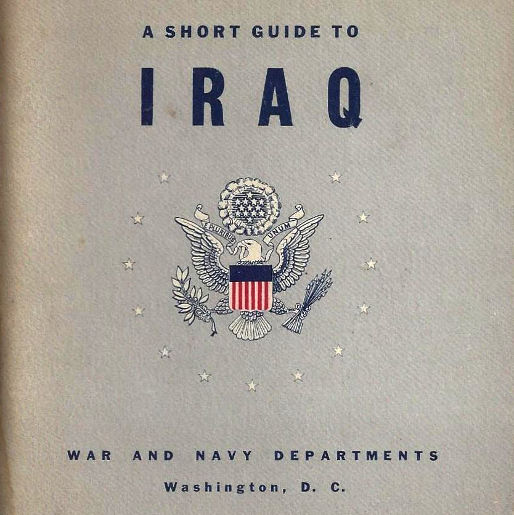 YOU HAVE been ordered to Iraq (i – RAHK) as part of the world-wide offensive to beat Hitler.
YOU HAVE been ordered to Iraq (i – RAHK) as part of the world-wide offensive to beat Hitler.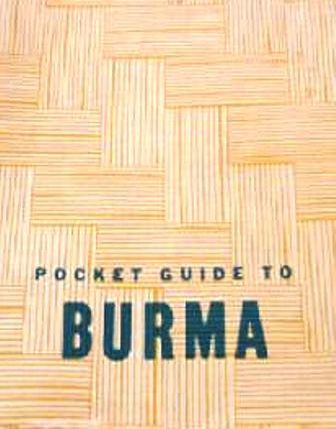 “I claim we got a hell of a beating. We got run out of Burma and it is humiliating as hell. I thinly we ought to find out what caused it, go back and retake it!”
“I claim we got a hell of a beating. We got run out of Burma and it is humiliating as hell. I thinly we ought to find out what caused it, go back and retake it!”